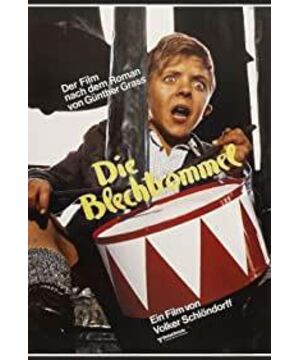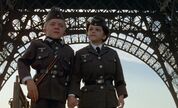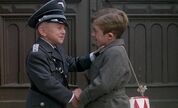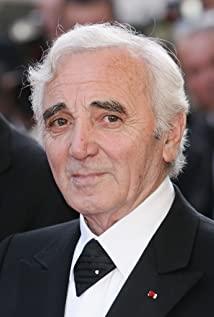Tin Drum - Life under War
"The Tin Drum" is the work of Schlondorf, one of the four directors of the new German film. Based on Glass' novel of the same name. The film focuses on Oscar, a little boy who does not want to grow up, and sees all kinds of life through his perspective. The first is his identity, which is the result of his mother's incest with his uncle. Just as the Buddhists say karma, Oscar's children also inherited his identity. This is destined to be the life of an unblessed child. The moment Oscar fell from the mother's womb, it meant that the mother's protective layer had broken. Oscar, who was born in a troubled world, not only brought him unspeakable psychological trauma because of his family, but also because the Nazis under the war caused an extraordinary understanding of his three views. As a result, Oscar's mind was slowly twisted until it became abnormal. In fact, Oscar represents not only a symbol of tragedy under war, but also thousands of devastated people like Oscar.
Judging from emotional clues, the people Oscar has encountered in his life who have the greatest influence on him are women. His mother made him understand the tragic retribution of self-inflicted consequences, his first love made him understand that trust is vulnerable, and Veronica made him understand that you never know which comes first, tomorrow or accident. His grandmother made him understand that, as a Kashube, even if the war came, he would never leave his homeland to survive.
Judging from the style of the film, the film is full of absurd and magical realism. The killed nun transforms into a messenger and ascends to the kingdom of heaven. Oscar refuses to grow up through wrestling. At the same time, the audio-visual language of the film is superb, especially the transitions that make people completely immersed in the plot of the film. In the transition used to express Oscar's grief and anger when he discovered his mother's cheating, little Oscar First sit on the towering iron tower, then beat the iron drum hard, and shatter all the glass with a sharp roar. When the camera is pulled down, the space naturally turns to the window sill where the mother and uncle are having an affair. The lens is like the eyes of the audience, allowing the audience to peek into the unbearable private life of Oscar's mother.
From the background of the Second World War set in the film, the character setting is also very clever. My mother is from Danzig, but my heart belongs to Poland, my father is a strong German Nazi, and my uncle represents a weak but prudent Poland. Danzig has been the land of Poland since ancient times, and the combination of weak mother and father implies the authority of Danzig City in Germany. The mother had an affair with her uncle, indicating that the people of Danzig are in Poland, and the toy store owner, as a Jew, fell in love with Oscar's mother, which is a strong irony that Jews fell in love with (Germany). And Oscar took Danzig (mother), because he accidentally injured Poland (uncle), and finally killed his father (Germany), thus winning spiritual salvation. Every link of the film is interlocked, maximizing the emotional delivery with the feeling of dripping through the stone, and finally stopped abruptly when Oscar's grandmother shouted.
At the same time, the film also hides a lot of tiny details. Before his death, the uncle showed the little pride of hearts in front of the camera, implying (showing off) that he won the sincerity of Oscar mother. When Oscar's father added a radio to the home, he replaced the portrait on the wall with a portrait of Hitler, reminding viewers that he had joined the Nazis. Oscar used his supernatural ability to draw hearts on the glass in Veronica, proving that his roar is not only destructive.
At the end of the film, the grandmother is still sticking to the green field where she met her husband, and the open ending gives people infinite reverie.
View more about The Tin Drum reviews











